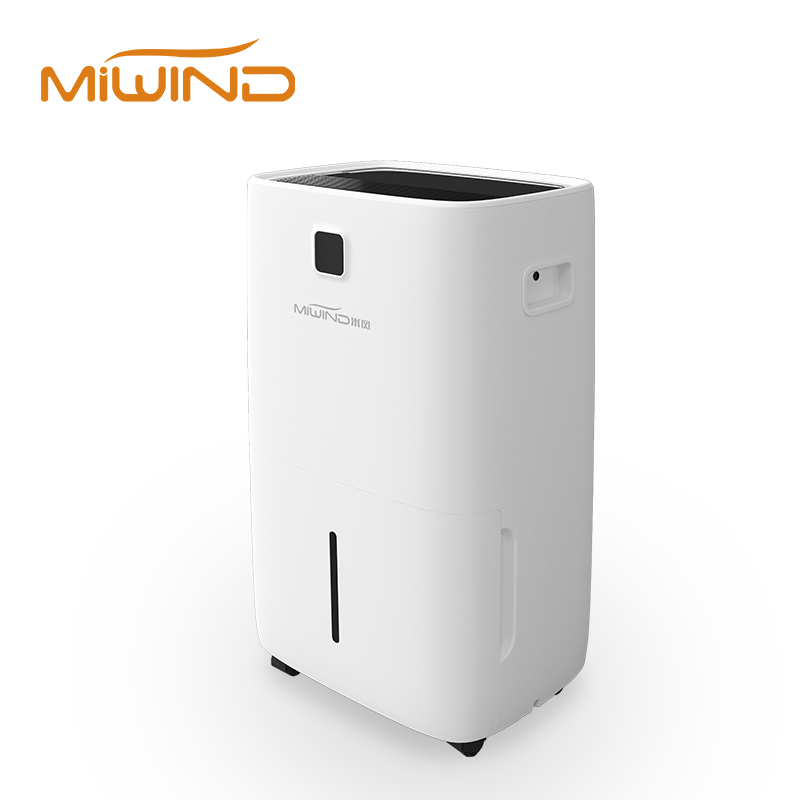
Dehumidifiers, including both commercial dehumidifiers and residential models, play a crucial role in controlling humidity levels in homes, offices, warehouses, and other environments. Knowing the differences between a commercial dehumidifier vs residential units helps you select the most suitable solution for your space. This article explores each type's key distinctions, applications, and considerations.
A dehumidifier is designed to reduce and maintain humidity levels in the air. By extracting excess moisture, these devices help prevent mold growth, improve air quality, and protect structures and belongings from water damage. However, not all dehumidifiers are created equal; they vary significantly based on their intended use.
Dehumidifiers can be broadly categorized into three types:
Residential Dehumidifiers: Designed for home use, these compact and portable units are ideal for smaller spaces such as bedrooms, basements, or apartments. Homeowners often choose energy-efficient residential dehumidifiers to manage moisture effectively.
Commercial Dehumidifiers: Engineered for large spaces like warehouses, gyms, and office buildings, commercial dehumidifiers are robust units with high moisture extraction capacity, suitable for businesses needing reliable humidity control.
Industrial Dehumidifiers: These heavy-duty units are used in manufacturing or processing facilities where humidity control is critical.
One of the most significant differences between a commercial dehumidifier vs residential unit is size and capacity:
Residential Dehumidifiers: These units generally remove moisture at rates ranging from 10 to 25 liters per day, making them suitable for areas such as bedrooms, basements, or small living spaces. They are often marketed as energy efficient dehumidifiers, emphasizing their ability to operate effectively without consuming excessive energy.
Commercial Dehumidifiers: In contrast, these larger units can extract between 30 and 150 liters of moisture per day or more. They are ideal for extensive areas like warehouses, gyms, or industrial settings. Their high capacity makes commercial dehumidifiers essential for large-scale environments where precise moisture control is critical.
The construction materials and durability also differ:
Residential Units: Typically made from lighter materials like plastic, residential dehumidifiers are designed for aesthetic appeal and ease of use in home environments.
Commercial Units: Constructed from heavy-duty materials such as steel or robust plastics, commercial dehumidifiers are built to withstand harsher conditions and frequent use. They often feature rugged designs that prioritize functionality over aesthetics.
Performance metrics vary significantly:
Residential Dehumidifiers: While many models are energy-efficient, residential units generally have lower moisture removal capabilities. They are optimized for quiet operation to suit home environments.
Commercial Dehumidifiers: These units are engineered for high performance and efficiency under demanding conditions. They can operate continuously without interruption and often come with features that enhance energy efficiency, making them a viable choice for businesses looking to reduce operational costs.
The sophistication of features can also set these two types apart:
Residential Models: Usually equipped with basic controls such as adjustable humidity settings, timers, and automatic shut-off when the water tank is full.
Commercial Models: Often include advanced features like programmable digital displays, remote controls, continuous drainage options, and higher capacity tanks that minimize maintenance efforts. Many commercial models also offer wholesale dehumidifier solutions, allowing businesses to purchase multiple units at a reduced cost.
Noise output is another factor to consider:
Residential Dehumidifiers: Designed to operate quietly so as not to disturb the household environment.
Commercial Dehumidifiers: Due to their powerful motors and larger fans needed for higher capacity operations, these units may produce more noise but are designed to handle larger volumes of air efficiently.
These units help maintain a comfortable living environment by preventing mold growth and reducing allergens. Many homeowners seek energy efficient dehumidifiers to minimize electricity costs while ensuring effective moisture control.
In these settings, maintaining optimal humidity is crucial not only for comfort but also for operational efficiency and product integrity. Businesses often rely on high capacity dehumidifiers to manage large spaces effectively.
When evaluating cost differences:
Initial Investment: Residential dehumidifiers tend to be less expensive upfront compared to commercial models due to their smaller size and simpler technology.
Long-term Costs: While commercial dehumidifiers require a higher initial investment, they may offer better long-term value through energy savings and reduced maintenance costs in large-scale applications. Businesses can also benefit from wholesale commercial dehumidifier solutions, purchasing multiple high-capacity units at discounted rates, which further distinguishes commercial dehumidifiers from residential options.
Choosing between a commercial dehumidifier vs residential unit ultimately depends on your specific needs, space size, and moisture control requirements. For smaller spaces with moderate humidity issues, a residential unit is often sufficient. However, for larger areas requiring significant moisture control or operating under demanding conditions, a commercial dehumidifier is likely the better choice.
By understanding the key differences in size, capacity, construction, performance, features, applications, and costs between residential and commercial dehumidifiers, you can make an informed decision that ensures optimal humidity control tailored to your environment. Whether enhancing comfort at home or maintaining critical conditions in a business setting, selecting the right dehumidifier is essential for achieving a healthier indoor atmosphere while considering energy efficiency and cost-effectiveness.